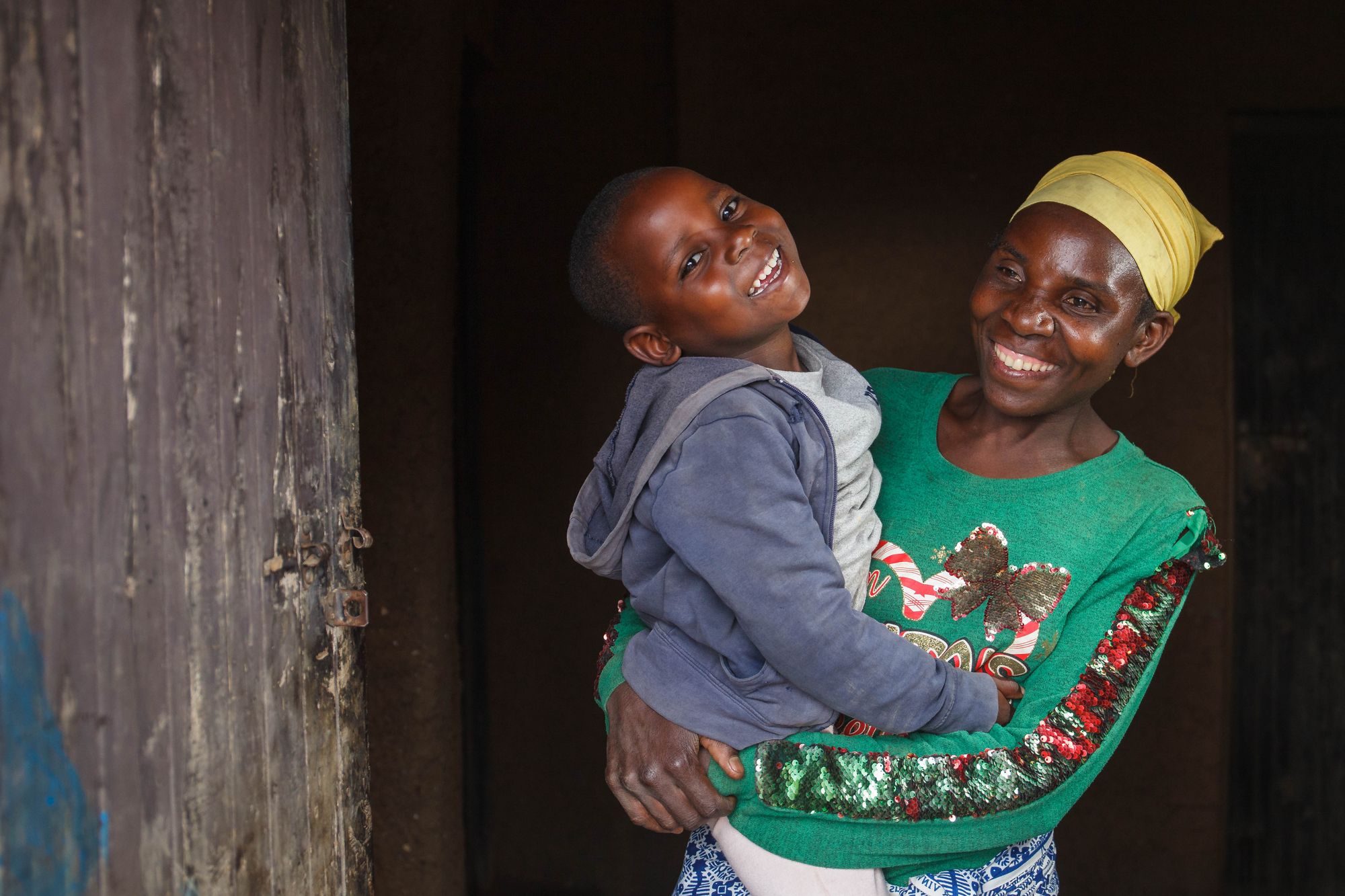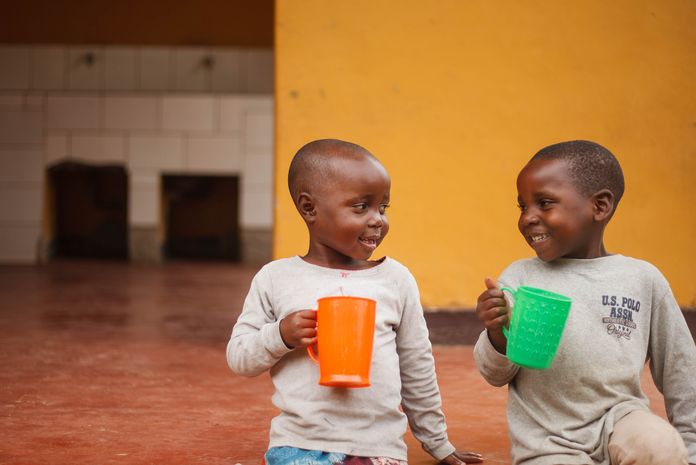
The Nutrition in City Ecosystems (NICE) project is transforming lives by improving nutrition and promoting healthier diets through locally-led actions. Across six secondary cities in Rwanda, Kenya, and Bangladesh, NICE works closely with local communities to connect consumers with farmers who produce food sustainably. The following story of Aline Ayingeneye and her son is a testament of how the NICE project is making a difference in people’s lives.
Aline Ayingeneye, a mother from Rubavu, Rwanda, faced the challenge of malnutrition when her son Moise fell seriously ill. This led her to the local health centre, where she was introduced to the NICE project, which is dedicated to improving nutrition and health in local communities.
Once at the health centre, Aline was guided by Joseph Mukasa, a health advisor, who supported Aline in ensuring Moise could regain his strength and improve his diet. With the support of the NICE project, Aline learned essential skills to preventing malnutrition, such as creating balanced diets and maintaining healthy lifestyles for her family. She also learned how to act like an informed, conscious consumer tending to her own crops, leaving her with a greater understanding of nutrition for her family and her community.
Collaborative efforts for sustainable nutrition
The NICE project is dedicated to fostering locally-led mutisectoral action to improve nutrition. By creating strong collaborations between the agricultural, food, and health sectors, and engaging public-private partnerships, the project emphasises the vital role that women and youth entrepreneurs play in food systems.
In Rubavu, Rwanda, where Aline resides, the project has facilitated healthy eating campaigns that have reached over 9,249 city inhabitants since 2021, familiarising people with which foods to buy and how to prepare simple, nutritious meals. Similar efforts have been made in Kenya, reaching 13,900 people and in Bangladesh, reaching 21,865.
Supporting farmers and sustainable practices
NICE works to increase both the supply and demand of nutritious foods produced using sustainable practices. The project collaborates closely with smallholder farmers, providing them with training on agroecological farming through a social business model called a Farmers’ Hub that also serves as demonstration farm.
These hubs not only raise awareness but also offer hands-on support, ensuring that farmers can produce high-quality, nutritious food that meets local demands. The involvement of women and youth along the value chains is central to this effort, empowering them as key actors in local food systems.
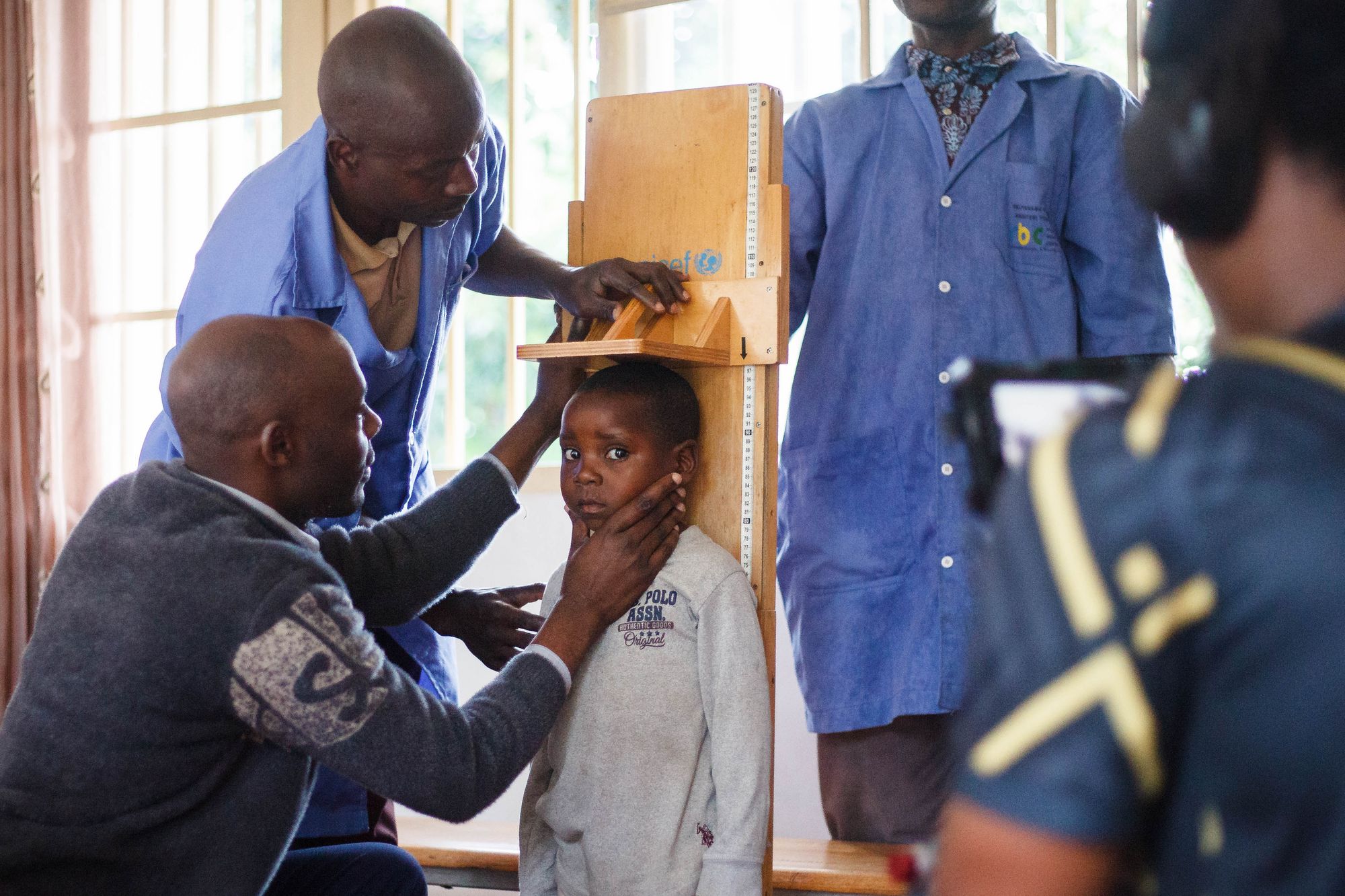
Preventing malnutrition and improving public health
One of the core objectives of the NICE project is to prevent malnutrition, particularly in children. The project collaborates with local health centres to provide parents with the knowledge they need to create balanced diets and maintain healthy lifestyles for their families.
Aline’s participation in the weekly health centre cooking demonstration events exemplifies this effort. Here, parents learn to prepare nutritious meals and make informed market purchases, ensuring that their children’s nutritional needs are met.
“Child stunting rates have dropped significantly, from 40% to 25%.”
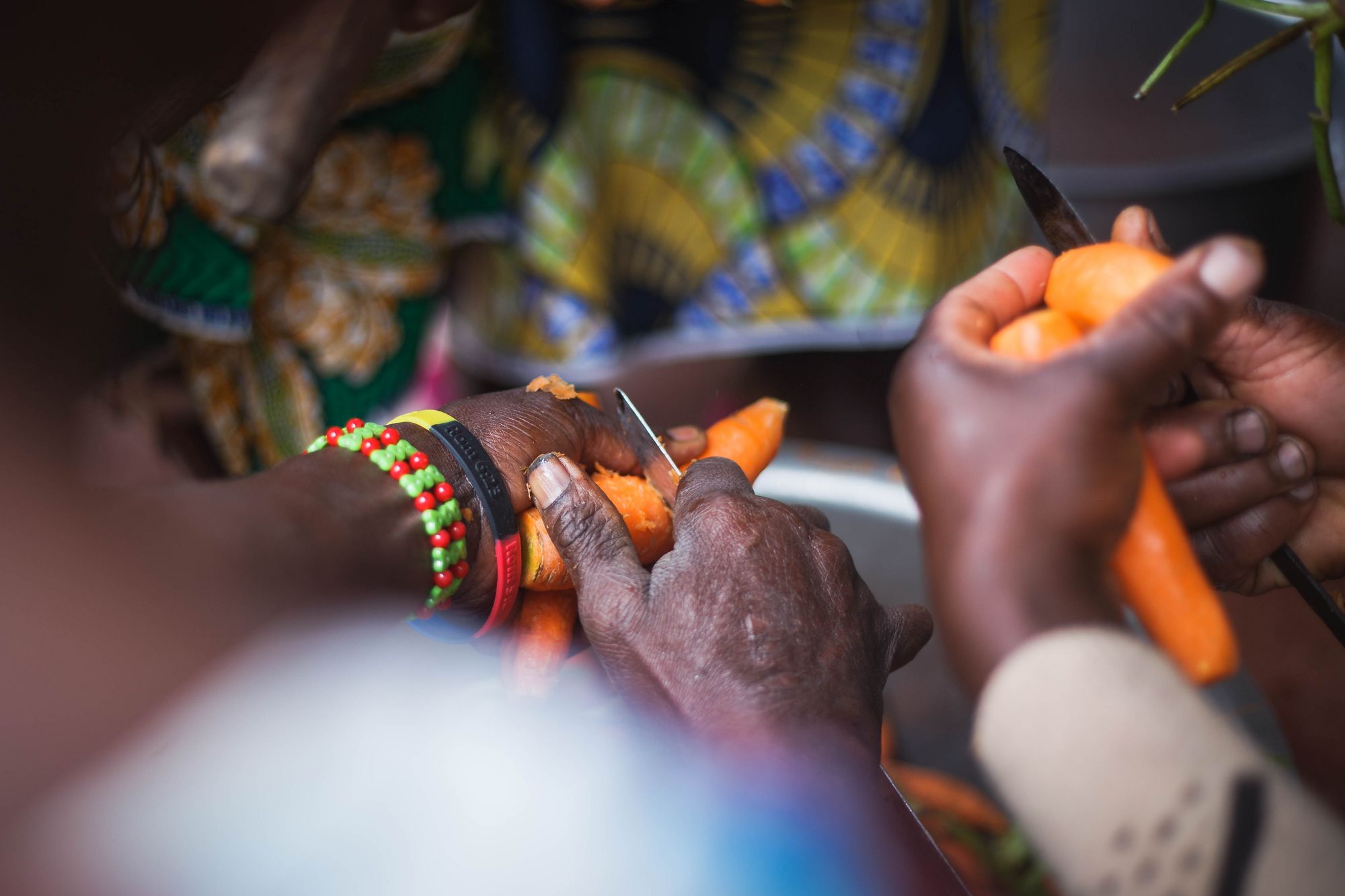
The impact of these interventions is clear: in Rubavu district, child stunting rates have dropped significantly, from 40% in 2019/20 to 25% (as of December 2023). This improvement is a testament to the collaborative efforts of government and development partners, including the NICE project.
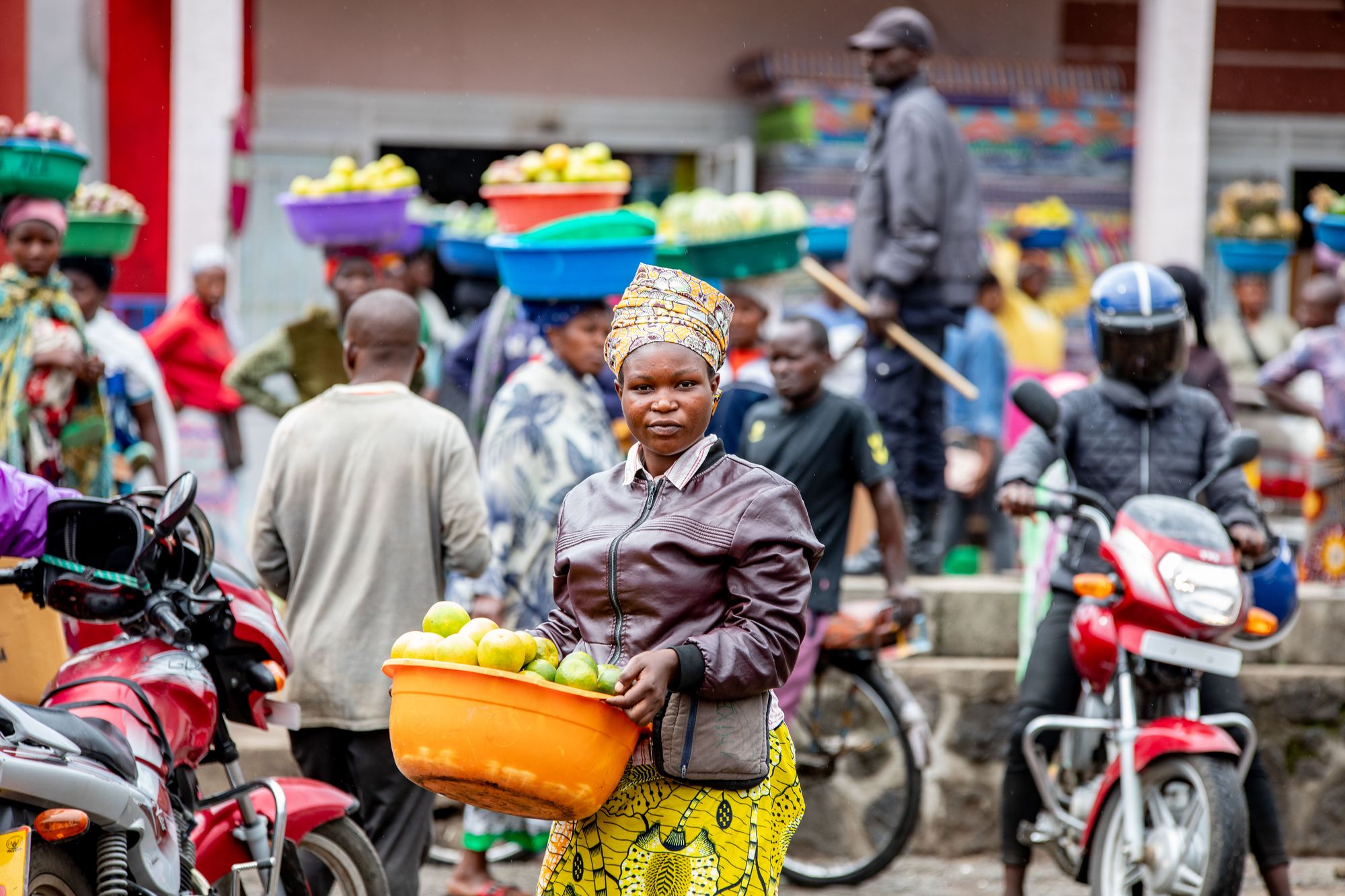
Secondary cities as catalysts for change
Cities around the world are increasingly becoming the main drivers of trade and local development. The NICE project focuses on the fastest-growing urban areas—secondary cities where 75% of the world’s population lives. By targeting these smaller or medium-sized cities, NICE aims to shape the urban future and improve the well-being of millions.
In Rwanda, the project has engaged with more than 8,000 school students since 2021, 1,502 students in Kenya and 1,175 in Bangladesh, teaching them how to set up and take care of kitchen gardens and promoting sustainability and self-sufficiency. This education is crucial for fostering a new generation of informed, health-conscious citizens.
The story of Aline and her son is just one example of how the NICE project is making a tangible difference in the lives of families across Rwanda, Kenya, and Bangladesh. By fostering collaboration between the agricultural, food, and health sectors, and placing a strong emphasis on women and youth, NICE is not only combating malnutrition but also laying the groundwork for healthier, more resilient communities.
“NICE is not only combating malnutrition but also laying the groundwork for healthier, more resilient communities.”
